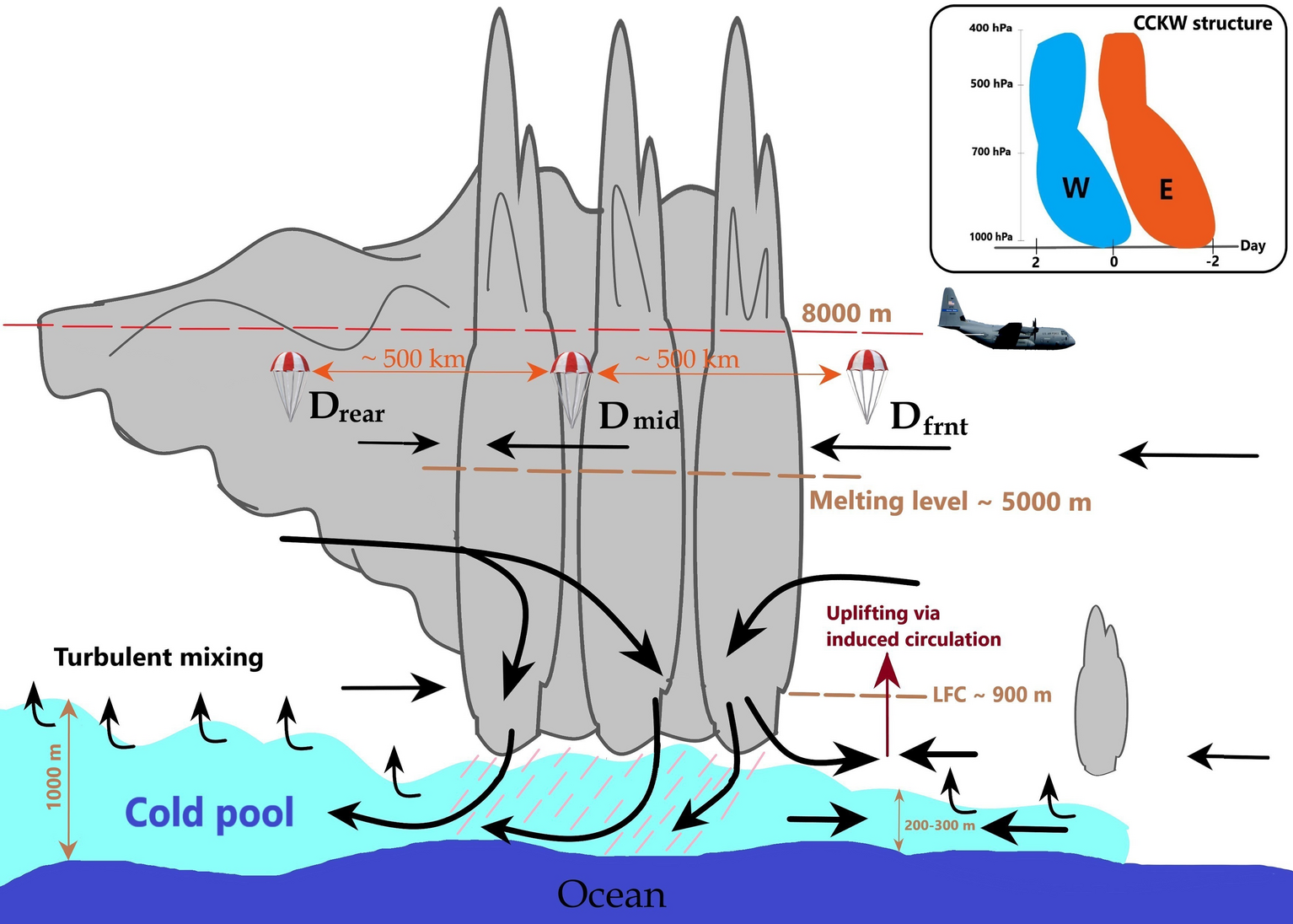In a pioneering mission, a group of researchers (including Dr Amit Tandon) participating the Monsoon Intra-Seasonal Oscillations in the Bay of Bengal (MISO-BOB) field campaign, funded by the US Office of Naval Research, has provided groundbreaking insights into the tropical supercluster dynamics over the equatorial Indian Ocean.
In a study led by Dr Phadtare from University of Notre Dame, observations were collected using a WC-130J aircraft operated by Air Force’s 53rd Weather Reconnaissance Squadron, which delved into the heart of the action during the summer monsoon seasons of 2018 . Dropsonde observations revealed a captivating variance of zonal winds within the supercluster. The upper troposphere favored easterlies, while the lower troposphere exhibited prevailing westerlies, creating a unique atmospheric stratification just below the 0°C level.
Of particular interest was the cold pool at the center of the supercluster. It maintained a consistent easterly component, with the coldest temperatures registering a 2.5°C drop at the center. The depth of the cold pool varied, reaching its deepest at the rear/western end and shallower at the front/eastern end, measuring at around 300 meters. A key revelation was the identification of the level of free convection (LFC) at the front end. On the eastern flank, researchers observed zonal convergence between the westerlies within the supercluster and ambient easterlies at lower tropospheric levels. This suggested the uplifting of conditionally unstable air parcels above LFC due to convergence, rather than the influence of the cold pool.
Conversely, the western flank exhibited low-level zonal divergence, further supporting the concept of ‘self-similarity’ between mesoscale convective systems and large-scale waves.
The MISO-BOB campaign’s findings provide a leap forward in our understanding of monsoon intra-seasonal oscillations. The data obtained from these aircraft observations holds promise for refining climate models and advancing our ability to predict tropical weather patterns, contributing to more effective global weather predictions in the future.
More information about this article can be found here. Congratulations Dr Phadtare and team!

A schematic of the observations taken by the WC130J aircraft in the supercluster. (Adapted from Figure 10 of Phadtare et al. 2024)


Recent Comments